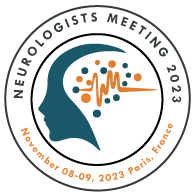
Fresthel Monica M. Climacosa
University of the Philippines, Philippines
Title: Monitoring Drug Efficacy through Multi-Omics Research Initiative in Alzheimer’s Disease (MEMORI-AD): Protocol for multisite, exploratory, prospective cohort study on the drug response-related clinical, genetic, microbial, and metabolomic signatures in Filipino patients with Alzheimer’s Disease
Biography
Biography: Fresthel Monica M. Climacosa
Abstract
Aetiological and clinical heterogeneity is increasingly recognized as a common characteristic of Alzheimer’s disease and related dementias. This heterogeneity complicates diagnosis, treatment, and the design and testing of new drugs. An important line of research is discovery of multimodal biomarkers that will facilitate the targeting of subpopulations with homogeneous pathophysiological signatures. High-throughput ‘omics’ are unbiased data-driven techniques that probe the complex aetiology of Alzheimer’s disease from multiple levels (e.g. network, cellular, and molecular) and thereby account for pathophysiological heterogeneity in clinical populations. This review focuses on data reduction analyses that identify complementary disease-relevant perturbations for three omics techniques: neuroimaging-based subtypes, metabolomics-derived metabolite panels, and genomics-related polygenic risk scores. Neuroimaging can track accrued neurodegeneration and other sources of network impairments, metabolomics provides a global small-molecule snapshot that is sensitive to ongoing pathological processes, and genomics characterizes relatively invariant genetic risk factors representing key pathways associated with Alzheimer’s disease. Following this focused review, we present a roadmap for assembling these multiomics measurements into a diagnostic tool highly predictive of individual clinical trajectories, to further the goal of personalized medicine in Alzheimer’s disease.

